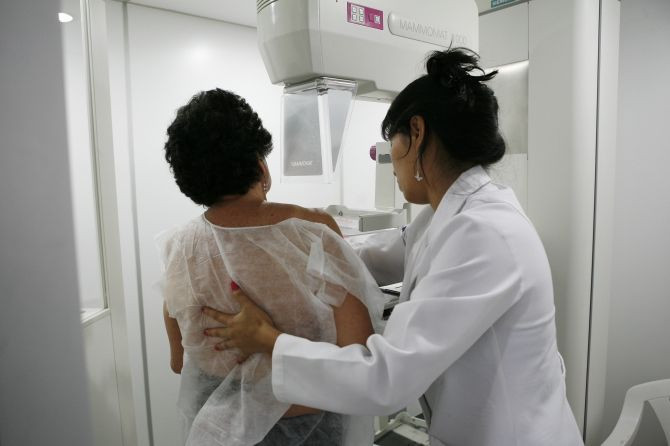Breast Cancer Screening Before 30 Increases Cancer Risk

Breast cancer screening before the age of 30 can cause more harm than good. A new study says that women who are the highest risk of developing breast cancer, those that carry the mutated BRCA genes, are more likely to get the cancer if they've been exposed to diagnostic chest radiation before the age of 30.
Radiation to the chest for detection of breast cancer or any other type of cancer, like Hodgkin's disease, before the age of 30 has been established as a risk factor. Some countries recommend that carriers of mutated BRCA1 and BRCA2 genes avoid chest radiation before the age of 30 and that they should instead get an MRI (magnetic resonance imaging) to detect the presence of cancer.
The study included nearly 2,000 BRCA1/ 2 mutation carriers from Netherlands, France and the UK between 2006 and 2009. All participants were over 18 years old at the time of the study. Researchers wanted to find if these high risk women had higher risk of radiation induced breast cancer risk or not.
Participants were asked if they had undergone breast screening, what type of breast screening was used (x-ray or mammography), age at first screening and number of breast cancer screenings when they were in their 20's and 30's.
Researchers found that 40 percent of the participants had developed breast cancer. A history of any diagnostic radiation before 20 increased breast cancer risk by 62 percent and those who got breast screening when they were in their 20's the chances of developing breast cancer increased by 43 percent.
Researchers warn that the results "should be interpreted with caution because there were few women with breast cancer who had had a mammogram before age 30 in the study".
Meanwhile, AP quoted Dr. Len Lichtenfeld, deputy chief medical officer of the American Cancer Society saying that the study wouldn't immediately change advice from the American Cancer Society. However, women should speak to their doctor about their options. "It's not possible today to make a blanket statement about what women (with the gene mutations) should do, but physicians and patients need to weigh the risks and benefits carefully," he told AP.
He also warned that women who need scans involving radiation shouldn't avoid them because of breast cancer fears. "No one should think that they should never get an X-ray because they have the BRCA1 or 2 gene mutations," Lichtenfeld said. "Just be careful that the X-rays you get are really the ones that you need."
The study was published in BMJ.



























